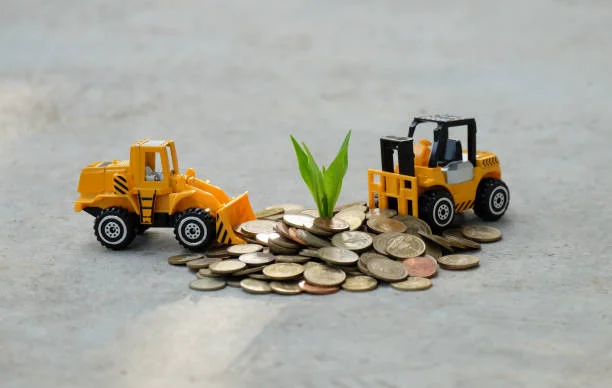Boxes, tape, bubble wrap, fuel, and discarded items—the process of moving is notoriously wasteful. While relocating may feel like a fresh start, it often leaves behind a trail of environmental impact that’s anything but clean.
The average household move involves dozens of cardboard boxes, hundreds of plastic items, and fuel emissions from trucks and cars. From packaging materials to landfill waste, the environmental footprint can be surprisingly large.
But there’s good news: moving doesn’t have to come at such a cost to the planet. With a few conscious choices, you can reduce waste, conserve resources, and make your transition to a new home more sustainable—without sacrificing efficiency or convenience.
Loved this? Dive deeper with a closely related topic you’re sure to enjoy.
The Hidden Environmental Impact of Moving
Let’s take a closer look at the typical byproducts of an average household move:
- Cardboard boxes: Often used once and thrown away
- Plastic wrap and bubble material: Non-recyclable and overused
- Packing tape: Adds difficulty in recycling cardboard
- Fuel emissions: Especially with long-distance moving trucks
- Unwanted furniture and items: Frequently dumped rather than donated
- Paper waste: Labels, receipts, instructions, and documentation
Multiplied across thousands of moves each day, the impact grows quickly. It’s no surprise that environmental groups often rank moving among the most resource-heavy personal activities.
Why Moving Sustainability Matters Now
In an era of climate change, resource scarcity, and overflowing landfills, every step toward sustainability counts. Choosing an eco-conscious moving company and adopting greener habits during your move supports:
- Reduced landfill waste
- Lower carbon emissions
- Responsible consumption
- Community donation efforts
- Eco-conscious consumer awareness
It also sets a tone for how you approach life in your new home—one of thoughtfulness, efficiency, and care for the planet.
1. Downsize With Intention
Decluttering is a moving must—but how you do it makes all the difference. Instead of tossing items in the trash, focus on reducing waste by:
- Donating usable goods to charities, shelters, and local organizations
- Selling furniture or electronics via marketplaces or yard sales
- Recycling properly: Electronics, batteries, and hazardous materials shouldn’t go in regular bins
- Repurposing old materials for packing (e.g., towels as cushioning)
Not only does this lighten your load, but it also keeps reusable items out of the landfill and in circulation.
2. Choose Reusable or Recyclable Packing Materials
Cardboard boxes and packing tape are industry staples—but greener options exist.
Consider:
- Reusable plastic bins: Many companies rent them for short-term moves
- Biodegradable packing peanuts or crumpled newspaper
- Tote bags, suitcases, and laundry baskets to transport soft goods
- Used boxes sourced from local stores, neighbors, or online groups
If cardboard is your only option, flatten and recycle it after the move. Just make sure all tape and labels are removed.
Tera Moving Services encourages clients to return or donate gently used boxes to others in the community—a simple act with big impact.
3. Rethink Your Transportation Footprint
The moving truck itself is one of the most significant contributors to your environmental impact. While you can’t always avoid it, you can reduce its footprint by:
- Consolidating trips: Avoid multiple back-and-forth drives if possible
- Booking a fuel-efficient moving company that maintains eco-friendly vehicles
- Sharing space in a truck if you’re not using a full load (known as freight consolidation)
- Avoiding peak traffic times to reduce idle emissions
Choosing a local moving company in Houston also limits long-distance emissions and often supports smaller, community-rooted businesses.
4. Digitize Your Documents
From moving contracts to change-of-address forms, paper builds up quickly during a move. Go digital wherever possible:
- Store important files in cloud storage
- Opt for e-bills and e-receipts from your movers and utilities
- Use scanning apps to photograph warranty cards, manuals, or lease agreements
Paperless moves aren’t just better for the planet—they’re easier to manage and harder to misplace.
5. Repurpose After You Arrive
Once you’re settled in your new home, don’t be so quick to toss your moving supplies. Instead:
- Flatten and save boxes for future storage
- Offer unused materials to neighbors or post them in local giveaway groups
- Keep bubble wrap, bags, or tissue paper for mailing items later
- Turn extra cardboard into kid crafts, pet playhouses, or drawer liners
Think creatively. A little repurposing extends the life of your materials and delays their journey to the landfill.
6. Offset Your Carbon Footprint
Some people choose to go one step further by offsetting the emissions from their move. There are organizations that allow you to calculate your moving-related carbon output and donate toward:
- Reforestation projects
- Renewable energy programs
- Clean water access
- Wildlife conservation
It’s a small financial investment that helps balance the unavoidable impact of transportation and logistics.
7. Work With an Eco-Conscious Moving Company
Ask questions before hiring your movers:
- Do they use reusable materials or offer box rentals?
- Do they participate in recycling programs?
- Do they maintain fuel-efficient or hybrid vehicles?
- Are they open to green practices if you provide the materials?
Tera Moving Services has worked with a growing number of clients who prioritize sustainable moving practices. When moving teams and clients share values, the process becomes more meaningful—and more mindful.
8. Bring Your Habits Into Your New Home
A sustainable move doesn’t end when the truck pulls away. Use the momentum to carry those values into your new life:
- Set up recycling bins from day one
- Install energy-efficient lighting or appliances
- Support local eco-friendly services
- Reduce your home’s carbon footprint over time
Your move marks a transition. Why not make it the start of greener living?
Final Thoughts
Moving is a natural time to declutter, organize, and begin again. But with a little forethought, it can also be a time to protect the planet.
By downsizing responsibly, choosing smarter materials, reducing transport waste, and working with an environmentally conscious moving company, you create a process that’s both efficient and ethical.
Tera Moving Services believes every move is a chance to make better choices. The fewer boxes you waste, the fewer trips you take, the fewer emissions you create—the greater the impact on your next home and the world around it.
So as you look forward to that fresh start, consider not just where you’re going—but how you’re getting there.
Handpicked for you: this featured post is packed with insight.






